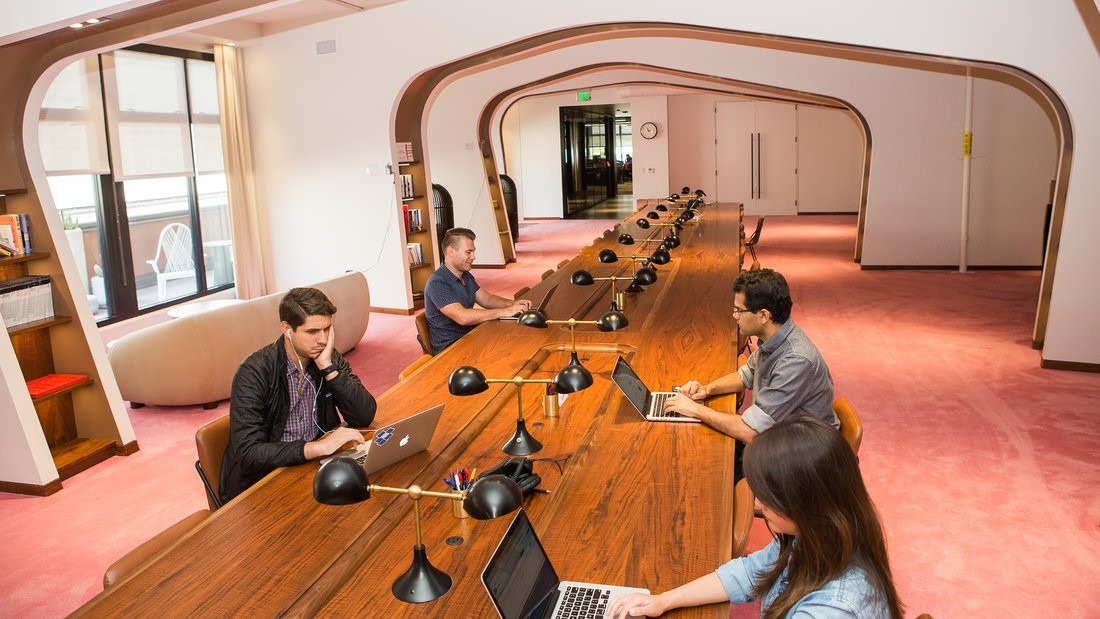政见不同影响职场团结怎么办?有四个方法
|
最近,美国的各路政治新闻扑天盖地,令人应接不暇,每天都在上演全国范围内的冲突与纷争。优秀的公司如何避免政治分歧破坏职场团结,也是一个值得关注的问题。 鉴此,我们采访了一些曾为500强企业提供咨询的精英人士,看看他们对此有何建议。 1、建立能抵御冲突的企业文化 G&S商业沟通公司CEO卢克·兰伯特的办法是建立一个“健康探讨辩论”机制。兰伯特介绍道,在去年激烈的总统选战结束后,G&S公司将“代表不同政治观点”的员工集合起来,“对选举结果进行讨论。”自此以后,该公司就有了定期举办演讨会的习惯,包括性少数群体的职场抗争和麻醉品管制危机等敏感话题都是他们探讨的议题。 |
Recent political news can seem like an all-consuming sideshow, with each day bringing more gory details of national strife and division. The challenge for great companies? Preventing toxic political discourse from seeping into the workplace. So we asked folks—some in the business of counseling Fortune 500 companies—how they’re advising their employees and their customers. Here, four takeaways: 1. Create a Culture That Can Withstand Conflict G&S Business Communications CEO Luke Lambert got out ahead of any potential problem by launching a regular program for “healthy discourse and debate.” After the rough-and-tumble presidential election ended last year, New York City–based G&S gathered employees “representing different political views,” Lambert says, “for a discussion about the outcome.” Since then, the company has hosted regular workshops on issues such as ¬LGBTQ workplace struggles and even the narcotics crisis. |

|
2、该出手时就出手 Dropbox是旧金山的一家创业公司。特朗普政府的旅行禁令生效后,该公司的一名伊拉克籍员工一直不敢出国工作,生怕一去就回不来。更糟糕的是,他这时已经做好了入籍归化的准备了。Dropbox公司帮助这名叫巴沙尔·阿尔拉维的员工获得了法律援助,公司的运营总监甚至亲自上阵帮忙。阿尔拉维表示:“公司的鼎力支持对我有重大意义。”这样的信任和力挺,公司的其他员工自然是看在眼里的。 3、别做伤人的事 华盛顿的FTI咨询公司高级顾问爱德华·雷利指出,企业的管理者在围绕一些话题发言时,应格外保持谨慎——比如民主党议员和共和党议员哪个好等等。消费产品和服务类企业的高管更应该如此。“很多企业高管就某个问题发表见解时,他们认为自己的话与客户的利益是一致的。”然而事实上,他们的发言是很容易“跑偏”的。比如棒约翰的创始人曾公开指责NFL球员的抗议活动影响了他公司的销量,事后他只得辞去CEO一职。他的公司作为NFL的一家大型赞助商最后也道了歉。显然他忘了共和党人和民主党人都是要吃披萨的。 4、相近才能相亲 路易斯·卡特是佛罗里达洲西棕榈滩Best Practice Institute公司的CEO。他也认为好的企业文化能解决大部分问题。那如果解决不了问题怎么办?他建议道:“你可以让政治观点最对立的两个人坐在一起。”经验证明,如果某个反对意见来自你身边的人,你还是愿意更花心思倾听的。(财富中文网) 本文的另一版本以《职场中的政治》为题刊于2018年三月的《财富》杂志。 译者:朴成奎 |
2. Come to the Rescue At Dropbox, a San Francisco startup, an Iraqi-born employee feared leaving the country for work after the travel ban was issued. To make matters worse, he was also scheduled for a naturalization interview. The company helped Bashar Al-Rawi by arranging legal help—the COO even reached out directly. “The tremendous support meant a lot to me,” Al-Rawi says. Such reassurances—and help—won’t go unnoticed by the rest of the company’s employees. 3. Do No Harm Edward Reilly, a senior adviser at Washington-based FTI Consulting, warns that executives should tread lightly when speaking out on certain issues—taking sides with, say, Democrat lawmakers over Republicans, for instance. Leaders of consumer product and service firms should especially be wary. “Many corporate executives speak to issues that they feel are aligned with their customer interests,” he says, but it’s easy to misfire. For example, Papa John’s founder John Schnatter stepped down as CEO after he publicly blamed the NFL player protests for harming his sales. The company, a big NFL sponsor, apologized. Apparently he forgot both Republicans and Democrats eat pizza. 4. Proximity breeds affection Louis Carter is CEO of the Best Practice Institute in West Palm Beach, Fla., and like Lambert of G&S he thinks building the right culture will head off most problems. And if it doesn’t? “Seat people with the highest degree of [political] conflict next to each other.” People will listen more closely to an opposing viewpoint if it comes from their cubicle-mate. A version of this article appears in the March 2018 issue of Fortune with the headline “Politics in the Workplace.” |













